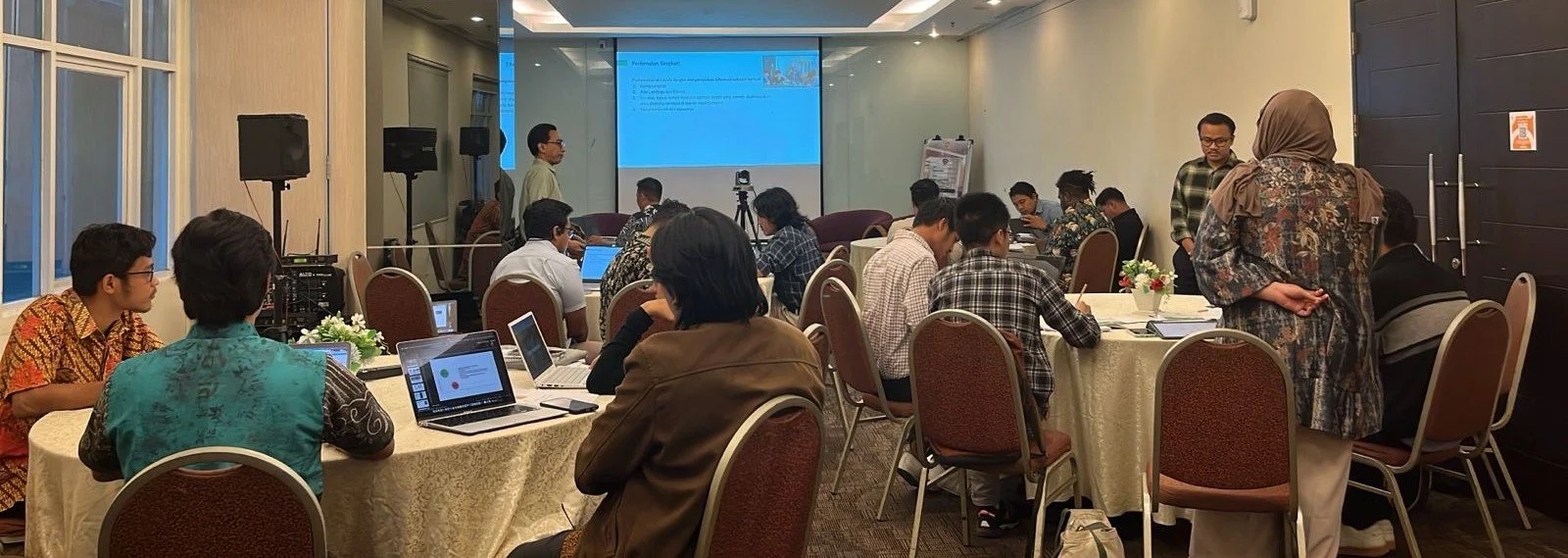Multidisciplinary workshop on “Promoting Remedies-Oriented Law Enforcement for Biodiversity Damage”
The event explored how integrating remedies into traditional enforcement can drive meaningful change for nature.
22 March 2025, Jakarta - This week, representatives of environmental, legal aid and conservation organisations met in Jakarta to discuss the challenges and opportunities of integrating remedies into environmental law enforcement. Over two days, the workshop, entitled “Promoting Remedies-Oriented Law Enforcement for Biodiversity Damage”, explored the approach promoted by the Conservation-Litigation.org network, which focuses using existing legal avenues to hold offenders of environmental crime responsible for the harm they cause not only in terms of criminal sanctions, but most importantly for actions to correct that harm through remedial actions that can make a real difference to nature.
The workshop was opened by Difa Shafira from the Indonesian Center for Environmental Law and Dwi Nugroho Adhiasto from the Rekam Nusantara Foundation to introduce participants to the approach and the latest trend on law enforcement against wildlife crime. Dr. Taufiq Purna Nugraha from BRIN, the National Research and Innovation Agency presented the types of damages and remedies that may be requested in biodiversity cases, and Krismanko Padang from the Ministry of Environment and Forestry highlighted the latest developments in wildlife crime and scientific evidence in wildlife crime cases. The session then continued with a presentation from Rudiantoro Saragih Napitu of the Ministry of Forestry, who discussed the current legal framework on wildlife crime, and Sugeng Riyono from the High Court of Jakarta, who presented on civil liability in wildlife crime cases.
Once of the key strategies of this approach is to strengthen legal responses to environmental harm by promoting interdisciplinary collaboration between law enforcement, government, environmental agencies, conservationists, legal practitioners and academics, drawing on a range of skills and expertise to guide and inform actions that can benefit biodiversity. To this end, the workshop ended with a feedback session coordinated by Prof. Andri Gunawan Wibisana, an environmental law professor from Universitas Indonesia, and Edi Gurning, a legal practitioner.
Throughout the workshop, the participants were actively engaged on the concrete application of the approach and were requested to respond to several legal questions, which were then used to help build an example civil liability damage claim on wildlife cases. The model claim aimed to build understanding among the participants on how to develop strong claims for both habitat-based and species-based cases, and will further inform the development of a guideline on building such damage claims for environmental and wildlife cases to support remedies-based legal action in the future.


